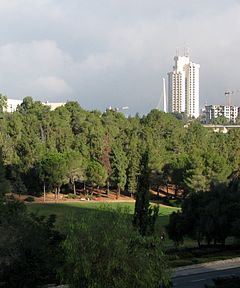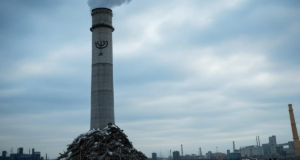Jerusalem, May 8 – Israel’s Ministry of the Environment announced today that to avoid expensive and time-consuming cleanup costs from throngs of visitors, the Nature and Parks Authority would transform most of the country’s green spaces outright into garbage dumps.
Hundreds of thousands of Israelis visited national parks and open green spaces on Tuesday in celebration of Independence Day, which has long been associated with, for example, a hiking trail, beach, or national forest, followed by a barbecue. The quantity of trash generated by these activities has put a strain on the staff or municipal employees charged with restoring the areas to their previous pristine state, and the effort to do so claims more resources and more time each year.
To cap the spiraling costs in personnel, work hours, and disposal materials, the Authority convened a post-Independence Day meeting of its directorate on Wednesday after several officials remarked that they saw dozens of city workers struggling to clean up the mess that remained in Jerusalem’s Sacher Park since the day before. Despite the allocation of extra trash receptacles and ash disposal bins, at noon the following day the 40-acre park, the city’s largest, was still littered with food scraps, wrappers, disposable plates, flatware, cigarettes, balloons, wooden skewers, napkins, broken or lost toys, defective chairs, bottles, cans, bags, and discarded articles of clothing.
Reports from other localities were even more dire, with the cleanup staff at two Mediterranean beaches reporting nearly insurmountable difficulties in clearing the area of beer bottle shards. A park ranger in the northern Galilee reported wading through piles of chicken bones and finding the picnic tables and benches at the Yitzchak Rabin Memorial Forest smeared with inexplicably copious amounts of humus.
The Authority quickly realized the hopelessness of trying to educate the public not to treat public space as a dump, or, God help us, a latrine. Instead, the board adopted a proposal to convert seven large, conveniently located parks and nature reserves into dual-purpose open space-landfill sites.
The list includes Jerusalem’s Sacher Park, The Jerusalem Forest, The Yarkon Park in Tel Aviv, and several other sites in the Elah Valley and Lower Galilee. Experts expect the move to save the Authority and local municipalities upwards of fifty million shekels per year, freeing up precious funds to help cover the costs of essential projects such as lining politicians’ pockets.





